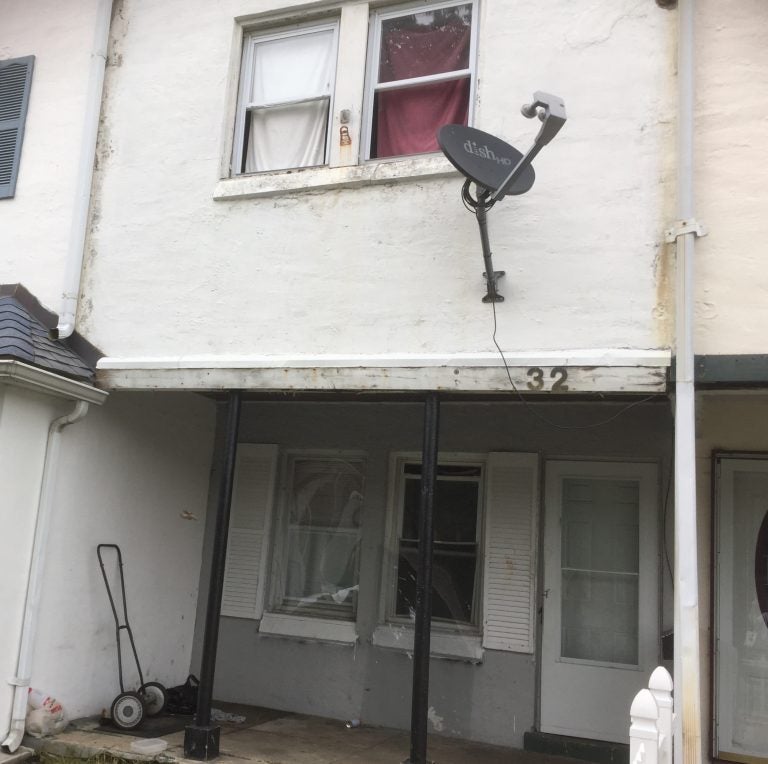New Castle County takes action against landlord who won’t pay up
George Fantini’s dozens of properties, mostly in Claymont, have had nearly 2,000 county code enforcement inspections and 418 code enforcement violations, officials say.

Landlord George Fantini has agreed to pay New Castle County $438,000 to settle his debt for code violations, back taxes and other infractions at properties such as this one in Claymont. (Zoe Read/WHYY)
New Castle County officials are taking action against a Delaware landlord who owes $415,000 in unpaid taxes and fees. The county executive has issued an executive order giving officials the discretion to initiate sheriff sale proceedings against scofflaw property owners.
George Fantini’s dozens of properties, mostly in Claymont, have had nearly 2,000 county code enforcement inspections and 418 code enforcement violations, county officials said Tuesday.
In addition, police and emergency medical personnel are regularly dispatched to the landlord’s properties.
“They’re a hazard to a community, and it’s an incredible expense county taxpayers are bearing,” said New Castle County Executive Matt Meyer of Fantini’s holdings. Taxpayers are “bearing that burden while this guy whose properties are a cause of this financial burden isn’t paying his fair share.”
Several Claymont residents have said they are fed up with the situation in their neighborhood. And 86 people have signed an online petition urging the government to pursue criminal nuisance abatement against Fantini on all properties “relating to high crime traffic.”
“One property had a shed full of trash bursting at the seams because they didn’t have trash service, and Mr. Fantini, although required, didn’t step up to ensure they had trash service,” said James Smith, assistant general manager of land use for the county.
“So that’s one of the biggest problems. And outside storage of garbage invites all kinds of problems with rodents, insects, bees — things people don’t want to see coming over onto their property.”
Smith said the county has been forced to remediate the problems for the good of the community.
“The question was, ‘How do we start making people pay the county and school districts the money they’re owed so we can support our government programs and stop pumping our resources into maintaining peoples’ properties?’ ” he said.
County officials say they’ve contacted Fantini several times to arrange payments on unpaid taxes and fees. Despite promises to do so, the county said no payment has been made.
Attempts to reach Fantini by phone for comment Tuesday were not successful.
Meyer signed the executive order Monday allowing sheriff sale proceedings against property owners who fail to maintain their properties or pay taxes, fees, and fines.
During the Great Recession of 10 years ago, the county essentially put a moratorium on sheriff sales to help good faith people.
“If we continue the moratorium, individuals like Fantini — there’s really not much incentive for them to pay,” Meyer said.
“Now when we say, ‘I’m signing an executive order, we can bring all your 36 properties to sheriff sale if you don’t do what you’re required to do,’ then suddenly the property owner has some incentive to pay off his past-due taxes, invest in his properties, because otherwise he’s going to lose them.”
The county is now initiating legal action to take Fantini’s properties to sheriff sale.
Officials emphasized Fantini’s tenants have legal rights, and their intention is not to displace them. The goal is to transition these properties to new owners who will uphold property standards if Fantini does not. The county also promises to help tenants who need assistance.
WHYY is your source for fact-based, in-depth journalism and information. As a nonprofit organization, we rely on financial support from readers like you. Please give today.





